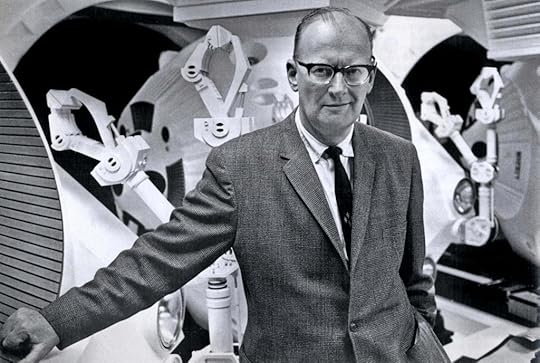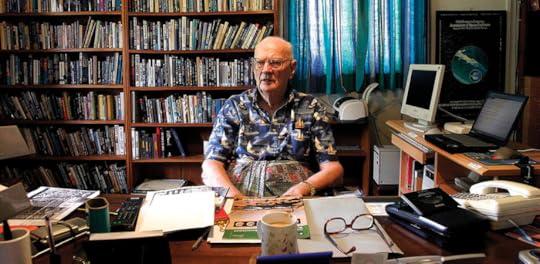2001: A Space Oddity
Is it true? Can you separate the art from the artist?
I don’t think so. As much as I loved Michael Jackson’s music in the 80s, and in particular Black or White and Billie Jean, I don’t listen to those songs anymore.
Art is an expression of the artist. It is shaped and molded and amplified by the artist, but more than that, art is a signature. Were it anonymous, that would be different, and art could stand alone, but it’s not. The artist’s prestige is part of the art itself.
And this leads me to Arthur C. Clarke, one of the legends of science fiction. I only just learned about the allegations of pedophilia raised against him. Clarke, himself, denied them and was cleared by the Sri Lankan police, but that doesn’t mean he’s innocent, only that he wasn’t prosecuted.

Dayanada de Silva, director of current affairs at the Sri Lanka Broadcasting Authority, said: “Arthur likes casual affairs with lots of different boys. If I think he might like one of my boys, I give them his phone number; he asked me to. The last time I saw Arthur, a few months ago, he was still having casual sex with boys. The boys do it for money, and money is nothing to Arthur C Clarke…” And at another point, saying, “He gets a lot of pleasure by moving with the teenage lifesavers. They are between 15 and 17. I have even sent Arthur boys, he shares the same tastes as me.“
In an interview with the Sunday Mirror (the audio for which has been conveniently lost), Clarke allegedly said of one encounter that, “If he really was 13, he will be a very mature 13… [and that such boys] looked reasonably mature. Mature enough for me.”
The age of consent in Sri Lanka is 16, which (conveniently) muddies accusations of sex with boys from the ages of 13 to 18, especially when no one is asking for ID.
It’s important to note that the Sunday Mirror subsequently published an apology and retracted their previous article. Clarke chose not to sue for defamation.

When asked if he was gay, Clarke replied, “No, just mildly cheerful… It would embarrass the family, you see… I could become the target of bigots.” And this was the essence of his defense, that there was a “long-standing conspiracy… in Sri Lanka to discredit” him.
And so we’re left with a conundrum: whether to believe his defense, which sounds reasonable, or to believe his accusers, like Peter Troyer, who stopped short of naming Clarke but left a detailed account of a shady encounter.
As humans, we love a sense of accomplishment, regardless of whether that is a world record in the Olympics or success in business or a golden Oscar in entertainment. We revel in feats of daring and strength. We honor those who achieve greatness in their field. And here in lies our achilles’ heel—what do we do when our heroes are shown not merely to be flawed, but morally bankrupt, preying on the most vulnerable?
The challenge is not to worship our heroes. Admiring them for their works while ignoring how they lived is wrong. Claiming ignorance or uncertainty to continue admiring them is cowardly.
Does this mean Arthur C. Clarke is cancelled? No, but it does mean I take a sober, objective position on his life and won’t canonize him as a saint or lionize him as a hero. His works are monumental, but they’re also stained. I’m not cancelling him—he did this to himself. He tarnished his own legacy.



